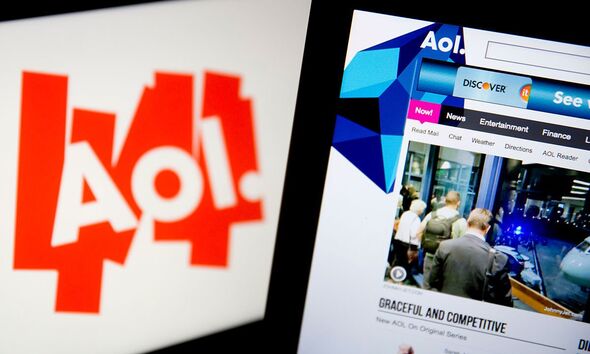Lifestyle
AOL Ends Dial-Up Service After 34 Years, Marking the End of an Era

AOL, once a dominant force in the early internet, is discontinuing its dial-up service after an impressive 34-year run. This decision will take effect on September 30, 2025, leaving many customers in the United States and Canada with no option but to shift to modern broadband connections.
The dial-up service, which relies on standard telephone lines, was revolutionary in the 1990s. It opened the doors to the internet for countless households, allowing users to connect to a new digital world filled with information and communication. Today, AOL’s dial-up service is a relic of a bygone era, struggling to keep pace with the demands of contemporary internet usage.
In its prime, dial-up connectivity offered speeds of up to 56 kilobytes per second. In stark contrast, the average broadband speed in the UK is projected to reach 223 megabits per second by 2025, according to UK regulator Ofcom. This means that downloading a 1GB file would take approximately one day, 15 hours, and 40 minutes on dial-up, while broadband could accomplish the same task in under 36 seconds.
AOL announced the discontinuation of its dial-up service on its website, stating, “AOL routinely evaluates its products and services and has decided to discontinue Dial-up Internet. This service will no longer be available in AOL plans.” The decision includes shutting down the AOL Dialer software and AOL Shield browser, both of which were designed for older operating systems and dial-up connections.
While AOL’s dial-up service is fading into history, the brand itself still exists, primarily through legacy email addresses. The UK branch of AOL ceased its dial-up operations long ago after being acquired by Carphone Warehouse in 2006. Nevertheless, the nostalgia associated with the brand persists, especially for those who remember the iconic sounds of connecting to the internet in the late 20th century.
AOL became a household name thanks to its user-friendly web and email services. In the early days of the internet, it helped shape online culture, including being immortalized in the 1998 film “You’ve Got Mail,” featuring iconic performances by Tom Hanks and Meg Ryan. The film showcased the romantic possibilities that the internet could offer, reflecting a time when AOL was at the forefront of digital communication.
As technology has evolved, so too have the tools available for internet connectivity. Dial-up’s limitations are evident in today’s world, where streaming services, online gaming, and high-bandwidth applications have become the norm. AOL’s decision to retire the dial-up service underscores the profound changes in how individuals access and utilize the internet.
Now, as AOL prepares to close this chapter of its history, it highlights the broader transition from early internet technologies to the fast, reliable broadband connections that dominate the landscape today. Despite its decline, the legacy of AOL continues to influence how we perceive the internet and its role in modern life. As of September 30, 2025, the dial-up era will officially come to a close, marking the end of an important period in internet history.
-

 World3 days ago
World3 days agoCoronation Street’s Shocking Murder Twist Reveals Family Secrets
-

 Entertainment4 months ago
Entertainment4 months agoKate Garraway Sells £2 Million Home Amid Financial Struggles
-

 Entertainment3 months ago
Entertainment3 months agoAnn Ming Reflects on ITV’s ‘I Fought the Law’ Drama
-

 Health3 months ago
Health3 months agoKatie Price Faces New Health Concerns After Cancer Symptoms Resurface
-

 Entertainment3 weeks ago
Entertainment3 weeks agoCoronation Street Fans React as Todd Faces Heartbreaking Choice
-

 World4 weeks ago
World4 weeks agoBailey Announces Heartbreaking Split from Rebecca After Reunion
-

 Entertainment6 days ago
Entertainment6 days agoTwo Stars Evicted from I’m A Celebrity Just Days Before Finale
-

 World6 days ago
World6 days agoKevin Sinfield Exceeds Fundraising Goal Ahead of Final Marathons
-

 Entertainment3 months ago
Entertainment3 months agoCoronation Street’s Carl Webster Faces Trouble with New Affairs
-

 Entertainment3 months ago
Entertainment3 months agoWhere is Tinder Swindler Simon Leviev? Latest Updates Revealed
-

 Entertainment4 months ago
Entertainment4 months agoMarkiplier Addresses AI Controversy During Livestream Response
-

 Science2 months ago
Science2 months agoBrian Cox Addresses Claims of Alien Probe in 3I/ATLAS Discovery





















